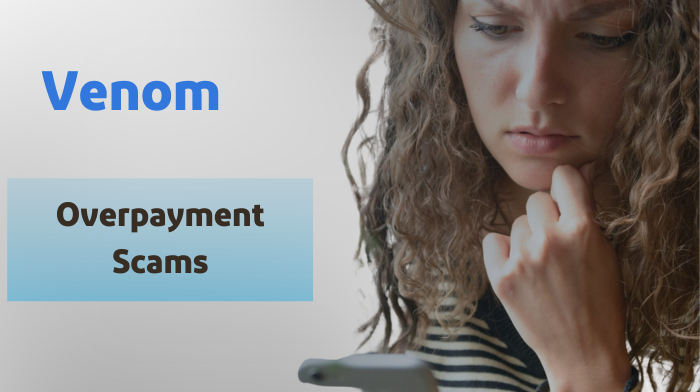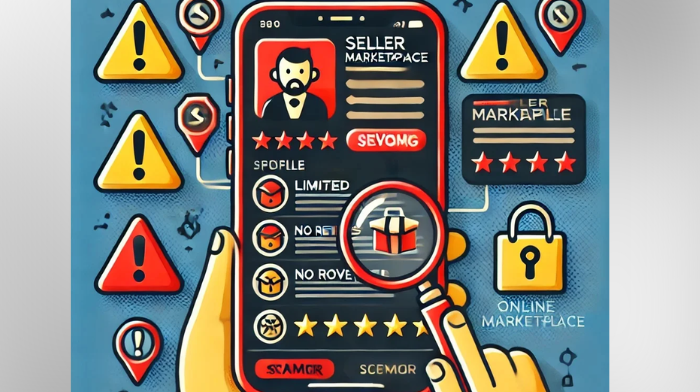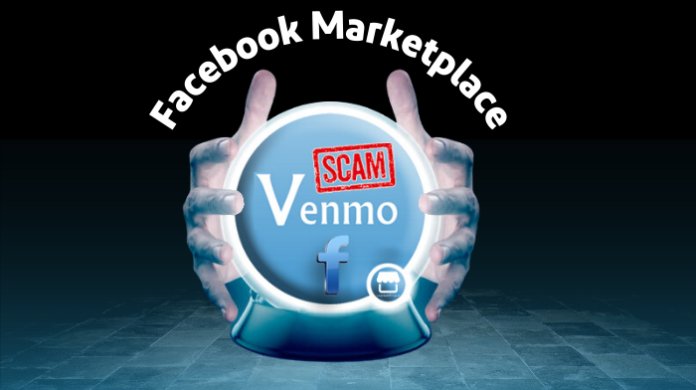Last Updated on February 1, 2026 by maryamnawaz
Table of Contents
Introduction
Platforms like Facebook Marketplace and payment apps such as Venmo provide quick, convenient financial exchanges. However, with this convenience comes the threat of scams. Facebook Marketplace Venmo scams are increasingly common. They are targeting unsuspecting users with fake listings, overpayment schemes, and fraudulent Venmo accounts.
In this article, we’ll explore these scams, explain how they operate, and provide tips to safeguard yourself from Facebook Marketplace Venmo scams.
What are Facebook Marketplace Venmo Scams?
Facebook Marketplace Venmo scams involve fraudulent tactics that exploit users who are trying to make purchases on Facebook’s online marketplace using Venmo for payments. Scammers set up fake profiles or listings to trick users into transferring money for items that either don’t exist or will never be delivered.
These scams often lure users in with low prices or scarce items, like popular electronics or collectibles, creating urgency and lowering the buyer’s vigilance.
Why Venmo Scams are Common on Facebook Marketplace?
Venmo is a widely used peer-to-peer payment platform with few protections against fraud. Unlike traditional banks or platforms like PayPal, which offer dispute mechanisms, Venmo treats most payments as final and irreversible. This lack of buyer protection makes Venmo a favorite among scammers.
Types of Facebook Marketplace Venmo Scams
Fake Listings and Phony Sellers
Scammers create attractive listings with too-good-to-be-true prices on high-demand items, luring buyers into paying upfront. Once the payment is sent, the seller often disappears, leaving the buyer empty-handed.
Overpayment Scams

The scammer pretends to be a buyer, “accidentally” paying more than the agreed amount. They then request a refund for the extra, but the initial payment turns out to be fraudulent, costing the victim the refunded amount.
Phishing Scams
Phishing scams involve emails or messages posing as Venmo support or verification prompts. Victims are led to input their login details on fake sites, exposing them to account theft.
Impersonation Scams
Impersonation scams involve scammers posing as trusted people, such as friends or family, to request money. They often fabricate urgent reasons, like emergencies, to exploit the victim’s goodwill.
Job and Prize Scams

Scammers may pose as employers or offer prizes, asking users to pay fees or provide personal details via Venmo. These are simply fronts to steal money or personal information.
Fake Verified Seller Badges
Another emerging trend involves fake “verified seller” badges or social proof. Scammers may create profiles that mimic legitimate sellers by copying photos, reviews, or even past transaction histories from real accounts. These fake badges are designed to instill a false sense of trust, making buyers believe they are dealing with a reputable seller. Users should remain cautious, verify reviews independently, and avoid relying solely on seemingly verified indicators when making transactions on Facebook Marketplace.
How to Spot a Venmo Scam on Facebook Marketplace
Identifying scams requires vigilance and attention to unusual behavior. Here are some warning signs:
- Too-Good-to-Be-True Prices: Be wary of items priced significantly below market value, especially if the seller insists on Venmo payment.
- Urgency or Pressure: Scammers often create a sense of urgency to prevent buyers from thinking carefully.
- Requests to Move Off-Platform: If the seller wants to switch communication to other channels, like text or email, it’s a red flag.
- Unusual Payment Requests: Requests for extra payments, overpayments, or alternative payment methods indicate potential fraud.
- Lack of Seller Profile Information: Genuine sellers typically have detailed profiles and histories on Facebook. Scammers, however, may have minimal or newly created profiles.
Tips to Avoid Facebook Marketplace Venmo Scams
Use Trusted Payment Methods
Only use Venmo for transactions with people you know personally. For online purchases, consider more secure options like PayPal, which offers buyer protection.
Check Seller Profiles Carefully

Review the seller’s profile for warning signs, such as lack of previous activity, no profile photo, or a newly created account. Engage in open-ended questions to gauge authenticity.
Avoid Sharing Personal Information
Never provide sensitive information, like your Venmo login details, to anyone requesting it, even if they seem legitimate.
Verify Listings and Ask for Additional Details
Ask the seller for specific details, such as more photos or proof of ownership, to confirm the item’s legitimacy. Scammers usually cannot provide these details convincingly.
Limit Payment to In-Person Transactions
Whenever possible, meet in person and pay only after inspecting the item. If the seller refuses, this could be a scam indicator.
Look for Secure Payment Indicators
Venmo now offers purchase protection for certain authorized merchants. Check for these indicators under the “Pay” button and proceed only if protected.
Use Privacy Settings on Venmo
Adjust your Venmo settings to make all transactions private, reducing exposure to strangers who might use transaction information to pose as someone you know.
What to Do If You’re Scammed
Contact Venmo Support
Report the scam to Venmo immediately. Venmo’s customer support can assist with unauthorized transactions and offer guidance on securing your account.
Report to Facebook
Flag the fraudulent seller’s profile and report their listing to Facebook, as this helps Facebook detect and remove scammers.
File a Report with the FTC
The Federal Trade Commission (FTC) provides resources for fraud victims. Visit IdentityTheft.gov to report scams and access helpful information on identity recovery.
Contact Your Bank
If you suspect your account details were compromised, notify your bank immediately. They can monitor your accounts for suspicious activity and offer added protection.
Change Your Passwords
If your Venmo or Facebook credentials were exposed, update your passwords and enable two-factor authentication for enhanced security.
Preventive Measures to Protect Your Venmo Account
- Enable Two-Factor Authentication (2FA): Add an extra layer of security by requiring a one-time code in addition to your password when logging in.
- Regularly Monitor Account Activity: Review your transactions frequently for any unusual charges. Immediate action can help prevent further losses.
- Limit Public Transactions: Configure privacy settings to keep all transactions private, which reduces exposure to potential fraudsters.
- Avoid Using Venmo for Business Transactions: Venmo’s user agreement discourages using the app for business purposes, and doing so increases the risk of scams.
Real-Life Examples of Facebook Marketplace Venmo Scams
Fake Ticket Sales
Scammers often target high-demand event ticket sales, offering fake or duplicated tickets. Once payment is sent, the tickets never arrive, or the seller disappears entirely.
Pet Adoption Scams
Posing as pet sellers, fraudsters create emotional appeals to push buyers into quick transactions. After payment, the “seller” ceases communication, and no pet is delivered.
Furniture and Electronics Deals
Low prices for electronics or furniture are common scam traps. Victims are persuaded to pay upfront, only to find that the item doesn’t exist or the seller vanishes after payment.
Conclusion: Staying Safe from Facebook Marketplace Venmo Scams
Facebook Marketplace Venmo scams exploit trust and convenience, leaving victims with little recourse. By recognizing red flags, verifying seller profiles, and opting for secure payment methods, users can protect themselves from these common scams.
Always exercise caution and remember that Venmo transactions lack buyer protections, making them vulnerable to fraud. With vigilance and proactive security practices, you can safeguard your digital transactions and enjoy a safer online buying experience.
Apart from that if you want to know about “Scamming Someone Online – Can It Get You Jailed?” then please visit our “Business” Category.
FAQs
Sharing your Venmo username with trusted individuals is generally safe. However, avoid sharing it with strangers, as it could expose you to scams or fraud.
No, Venmo typically doesn’t provide refunds for scams.
Using a trusted service like PayPal is the safest option.


























